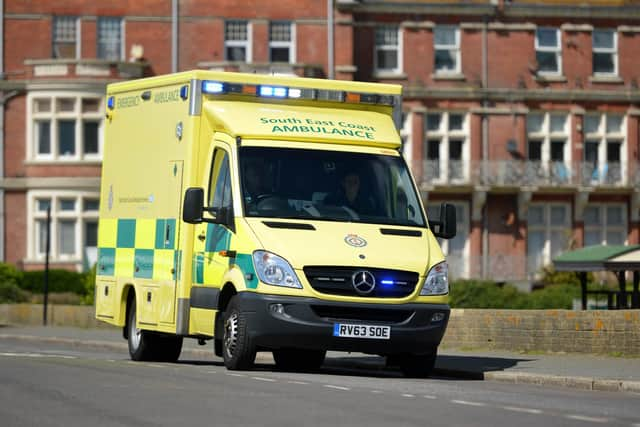Ambulance staff to wear body-worn cameras to help tackle assault
and live on Freeview channel 276
It comes after 245 reports of assault on SECAmb staff in 2019/20. In the same year, staff reported 219 incidents of directed verbal abuse.
Staff are encouraged to report all incidents so that they can be investigated and wherever possible the individual prosecuted and held to account for their actions.
Advertisement
Hide AdAdvertisement
Hide AdThe trial, which will last 12 months, is expected to begin in the coming weeks and follows the Trust’s successful application for funding from NHS England and NHS Improvement.


Around 400 body worn cameras being used by crews across five areas covered by the Trust - Thanet, Medway, Gatwick, Brighton and Guildford.
The trial also forms part of a wider trust approach to tackle violence and aggression against staff which includes close working with police services to ensure all incidents are robustly managed alongside conflict resolution training for staff.
Emma Williams, executive director of operations at SECAmb, said: “One assault against a member of staff is one too many. Our staff should expect to be able to come to work and care for people without the risk of violence or abuse. Sadly, there are a small number of individuals who seem to think this kind of behaviour is acceptable.
Advertisement
Hide AdAdvertisement
Hide Ad“We are keen to establish if body-worn cameras can help to further protect our staff by acting as a deterrent and also provide valuable evidence for use in court. We will study the findings of the trial closely and also continue to work with police colleagues across our region and ambulance services nationally to tackle this issue that the huge majority of the public find abhorrent.”